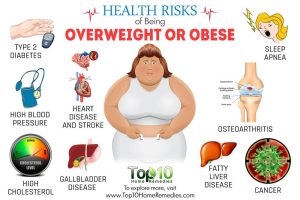- 18 October 2023
- 84
How Age, Muscle Mass, and Health Conditions Influence Weight
Weight management is a multifaceted journey influenced by various factors, and among them, metabolism, aging, muscle mass, and underlying health conditions hold significant roles. In this comprehensive guide, we will delve into the intricate relationship between these elements and their impact on weight. By understanding the dynamics of metabolism, the effects of aging, the importance of muscle mass, and the influence of health conditions, individuals can gain insights to better address their weight-related challenges.
Metabolism and Weight
- Basal Metabolic Rate (BMR): BMR represents the number of calories your body needs at rest to perform essential functions. A higher BMR means you burn more calories even when inactive.
- Caloric Expenditure: Understanding your BMR and the calories you burn through physical activity helps in creating a balanced calorie deficit for weight loss or maintenance.
- Factors Affecting Metabolism: Factors such as genetics, gender, and muscle mass can influence your metabolism.
Aging and Weight
- Metabolic Slowdown: As individuals age, their metabolic rate tends to decrease, making it easier to gain weight.
- Hormonal Changes: Age-related hormonal changes, especially during menopause for women, can contribute to weight gain.
https://imagevars.gulfnews.com/2021/04/06/Kid-pandemic-weight-gain_178a7cd4e03_original-ratio.jpg - Maintaining Muscle Mass: Resistance training and exercise can help counteract the muscle loss that often accompanies aging, preserving metabolism.
Muscle Mass and Weight
- Metabolically Active Tissue: Muscle is metabolically active and burns more calories at rest than fat. A higher muscle mass contributes to a more efficient metabolism.
- Aging and Muscle Loss: Sarcopenia, age-related muscle loss, can result in a slower metabolism. Engaging in strength training can mitigate muscle loss.
Health Conditions and Weight
- Hormonal Imbalances: Conditions like hypothyroidism, polycystic ovary syndrome (PCOS), and Cushing’s syndrome can affect metabolism and lead to weight gain.
- Medications: Certain medications, including some antidepressants and corticosteroids, can have weight gain as a side effect.
- Emotional Health: Conditions like depression and anxiety can influence eating habits, leading to weight gain or loss.
Chronic Health Conditions and Weight
- Obesity: Obesity itself is a health condition that can have complex interactions with metabolism and overall health.
https://th.bing.com/th/id/R.ae54f6ebdf72099287d8a6ef0696dfc7?rik=Rq5%2f3l9WQezfDA&riu=http%3a%2f%2fwww.top10homeremedies.com%2fwp-content%2fuploads%2f2016%2f03%2fhealth-risks-overweight.jpg&ehk=JmBGqg5riiCvigcUbyUs4YKdiO7b3b6FkRDFOQ90sxk%3d&risl=&pid=ImgRaw&r=0 - Weight Management for Health: Managing weight is often vital for addressing or preventing chronic health conditions like diabetes, heart disease, and hypertension.
Balancing the Equation: Lifestyle and Choices
- Healthy Eating: A balanced diet that meets nutritional needs while considering caloric intake is essential.
- Physical Activity: Incorporating regular exercise, including both cardiovascular and strength training, can support metabolism and weight management.
- Consulting Health Professionals: Seeking guidance from healthcare providers, dietitians, and fitness experts can be beneficial, especially when managing weight in the context of underlying health conditions.
Conclusion: Understanding and Navigating Weight Dynamics
The relationship between metabolism, aging, muscle mass, and health conditions is complex and individualized. A comprehensive approach to weight management involves understanding these factors and making informed choices. By recognizing the nuances of metabolism and its influencers, individuals can better navigate the challenges and opportunities that come with weight management, working toward a healthier and more balanced lifestyle.



